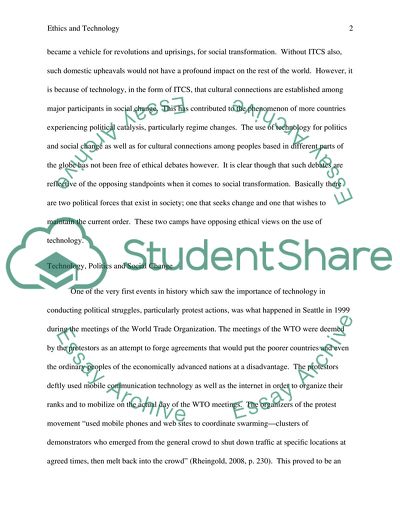Cite this document
(“Ethics and Technology in Politics, Social Change, and Globalization Term Paper”, n.d.)
Ethics and Technology in Politics, Social Change, and Globalization Term Paper. Retrieved from https://studentshare.org/social-science/1771722-ethics-of-technology-in-present-society
Ethics and Technology in Politics, Social Change, and Globalization Term Paper. Retrieved from https://studentshare.org/social-science/1771722-ethics-of-technology-in-present-society
(Ethics and Technology in Politics, Social Change, and Globalization Term Paper)
Ethics and Technology in Politics, Social Change, and Globalization Term Paper. https://studentshare.org/social-science/1771722-ethics-of-technology-in-present-society.
Ethics and Technology in Politics, Social Change, and Globalization Term Paper. https://studentshare.org/social-science/1771722-ethics-of-technology-in-present-society.
“Ethics and Technology in Politics, Social Change, and Globalization Term Paper”, n.d. https://studentshare.org/social-science/1771722-ethics-of-technology-in-present-society.


